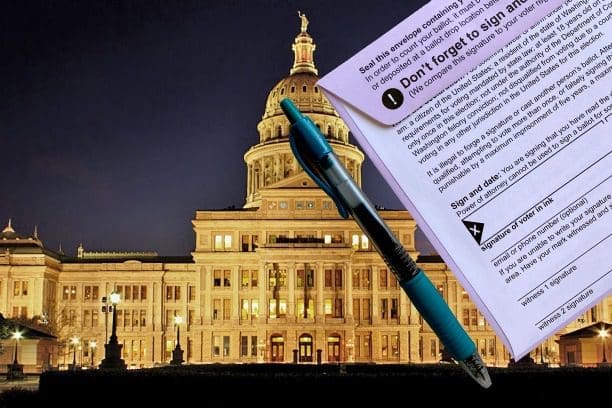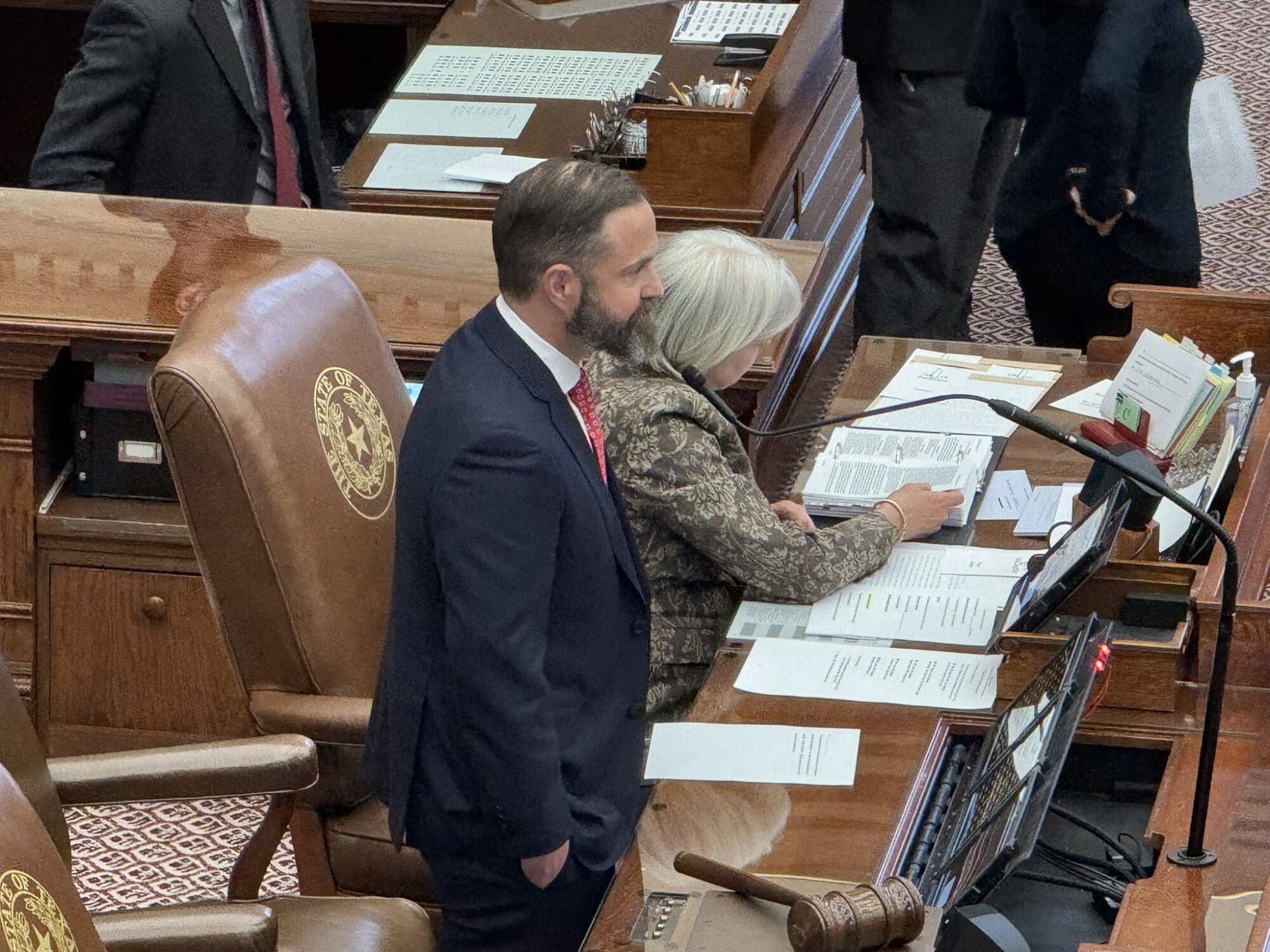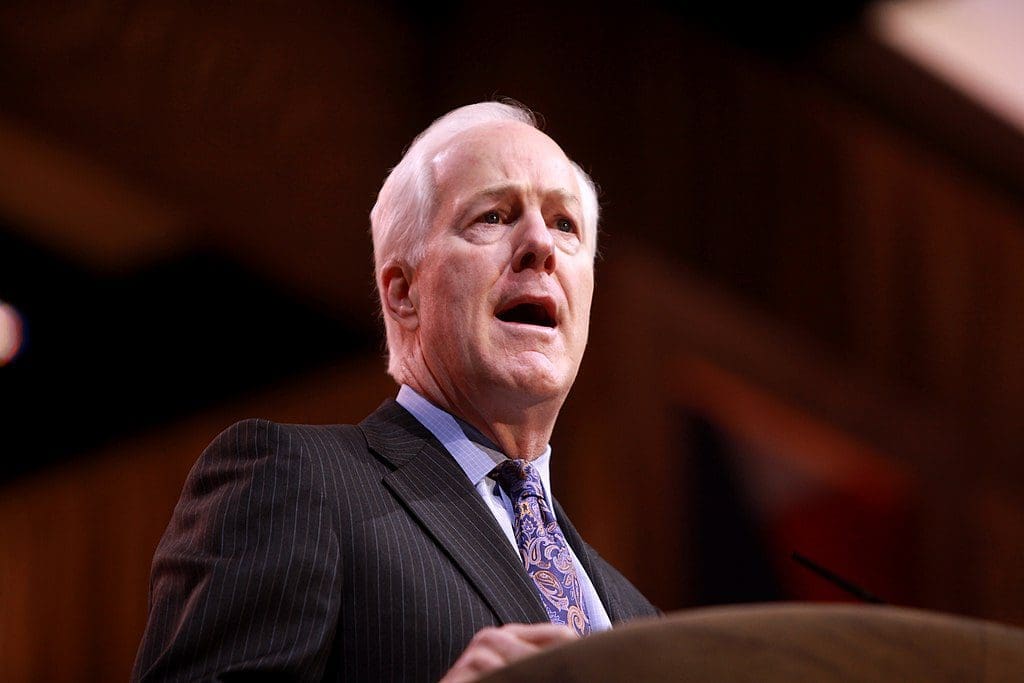Just ahead of this week’s deadline, Texas lawmakers in both chambers filed two big bills addressing election integrity, one of the key priorities for the legislative session.
The highly anticipated omnibus bills, House Bill 6 and Senate Bill 7, feature long lists of election procedures and ballot security measures identified by advocates as needed reforms to improve voting reliability and voter confidence—including a curb on mail-ballot vote harvesters.
Election integrity is a top legislative priority for the Texas GOP and the only one also designated an emergency item by Republican Gov. Greg Abbott.
Both bills are likely to receive extensive debate and undergo revisions in committee before making their way to the House and Senate floors. Republicans hold a majority in both chambers.
SB 7, introduced Thursday and immediately referred to committee, is authored by State Sen. Brian Hughes (R–Mineola), along with 12 fellow Republican senators. Hughes chairs the Senate State Affairs Committee, which hears election-related bills in the upper chamber.
Hughes’ bill addresses a range of election issues, including voter registration and voter roll maintenance, voting by mail procedures, security and oversight at polling places and counting stations, and civil penalties for election code violations.
The bill requires counties to start using “auditable voting systems” that produce a paper audit trail by 2026, allows live-streamed video of central count areas, and prohibits “drive-thru” voting (a practice invented last year by Harris County’s Democrat election chief that’s not allowed for in Texas Election Code).
It also limits private donations to county election administrators to $1,000, unless the Texas Secretary of State’s office approves more. House Bill 2283 by State Rep. Phil King (R–Weatherford) would ban all private funding of election offices. In 2020, Facebook founder Mark Zuckerberg funneled hundreds of millions to select local election offices, including in Democrat-controlled Dallas and Harris counties.
HB 6 was filed Friday by State Rep. Briscoe Cain (R–Deer Park), who chairs the House Elections Committee.
Like SB 7, it contains a wide variety of provisions, but the one likely to make the biggest dent in voter fraud targets paid mail-ballot harvesters.
Cain’s bill expands the state’s organized election fraud laws enacted in 2017, making it a crime to accept or pay compensation for newly defined “vote harvesting services.” The change will help prosecutors catch not just low-level campaign workers paid to bring in ballots, but also the candidates who finance their illegal activities.
“This is a full declaration of war against the Democrat vote harvesters,” said conservative activist Mike Openshaw, calling it an “all-hands-on-deck” moment for election integrity advocates.
Interest in securing the vote intensified during 2020, as election officials across the country used fears about the Chinese coronavirus as an excuse to loosen voting rules, and controversies surrounding November’s election results heightened Texans’ concerns about voting accuracy and ballot security.
At the same time, Democrats have continued to push for even more lax voting processes, both in the Texas Legislature and through a federal takeover of state elections.
More than 400 election-related bills have been filed this session, by both Democrats and Republicans; another 6,400 House and Senate bills have been introduced on other issues.
Legislators have a relatively short time to move their bills through the process in both chambers. The last day of the regular legislative session is May 31, but practical deadlines for action occur much sooner.
Last session’s comprehensive election reform bill passed out of the Senate in April but languished and eventually died in the House.
Details about bills, along with other resources to help citizens participate in the legislative process, are available at Texas Legislature Online.
Contact information for state lawmakers can be found at Texas Directory.
To share your opinions about proposed election integrity legislation, contact eanderson@texasscorecard.com.





